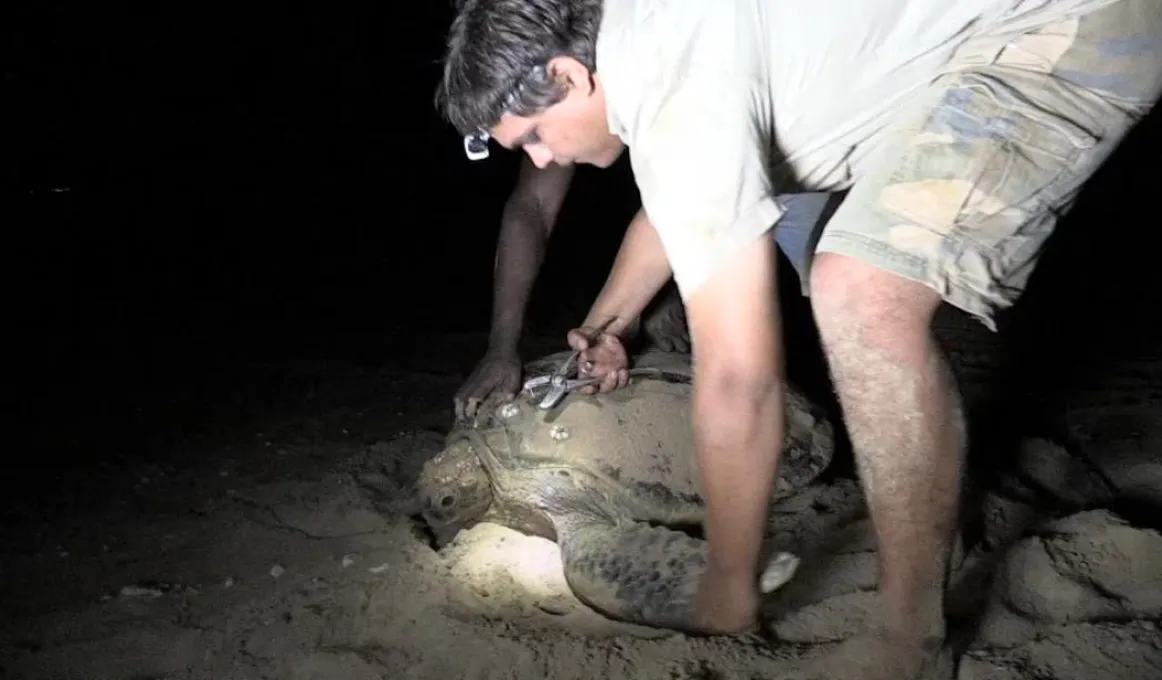Turtle camp: Looking after country

Many Indigenous communities are looking at ways of keeping their culture and heritage alive while providing jobs for community members. The li-Anthawirriyarra people from around Borroloola in the Gulf of Carpentaria are tackling this by setting up a trial eco-tourism business and cultural programme.
Many Indigenous communities are looking at ways to keep their culture and heritage alive while providing jobs for community members.
The li-Anthawirriyarra people who live in and around Borroloola in the Northern Territory are one of the communities that have this mix just right. With support from the Australian Government’s Working on Country and Indigenous Protected Areas programmes, they have set up a trial eco-tourism business and cultural programme that is providing many benefits for the local people.
The li-Anthawirriyarra Sea Ranger Unit and Yanyuwa and Mara families started the ecotourism trial in 2012. Tourists are invited to attend the annual turtle camp on West Island, part of the Sir Edward Pellew group of islands off the coast of Borroloola. Visitors stay on site with traditional owners and participate in Wundanyuka (flatback turtle) monitoring.
“Every year in September we are here to be part of the turtle camp.
It’s good to invite tourists along because it’s educational for them to come to this very important place and to see the turtles lay eggs,” said traditional owner, Marlene Timothy.
One of the reasons the community is right behind the turtle programme is that they see it as a way to teach the young ones about their culture.
“It is very important; it’s for the future generation of kids who are growing up, our grandchildren and their children who are going to be looking after it. Plus it is keeping culture and languages alive,” said Leonard Norman, one of the senior li-Anthawirriyarra sea rangers.
Sean Fitzpatrick, another of the rangers, says “this work helps keep the turtle population healthy. By helping out the animals we are getting good data and valuable research ourselves.”
According to Northern Territory Government scientist, Rachel Groom, the work the rangers are doing has many benefits.
“This research contributes to both the Northern Territory and national understanding of turtles. It doesn’t stop at the cultural eco-tourism camp, as the benefits go far beyond what’s happening on the beach. It’s a really great combination,” Rachel said.
Jodie Evan is a proud traditional owner who loves showing off her country to tourists.
“We feel proud bringing tourists here and to the family gatherings. We like to show them our country and invite everyone to it,” Jodie said.
Lucy Morrison is one tourist who thoroughly enjoyed her time at the turtle camp and the experiences she got from interacting with the local community is something she will always remember.
“Everyone brings you in and shows you what they do here. I have been fishing and they have taught me how to weave. I have been swimming in the surf with the kids and then all the turtle stuff as well. I just love learning about the animals here,” Lucy said.
The final word goes to sea ranger Leonard Norman.
“We would like the wider Australian community to come up here, visit Borroloola and come out to the turtle camp. It is a yearly thing where we tag, look after the turtles with the nesting and also the hatchlings,” Norman said.
“We would like to see more non-Indigenous people come up here and enjoy, because it’s going to benefit all Australians.”
Find out more
The Jobs, Land and Economy programme provides support to connect working age Indigenous Australians with real and sustainable jobs, foster Indigenous business and assist Indigenous people to generate economic and social benefits from economic assets, including Indigenous-owned land.
The Working on Country programme recognises that protecting and conserving the environment is a shared responsibility that also provides sustainable employment for Indigenous people.
The li-Anthawirriyarra [people of the sea or saltwater people] live in and around Borroloola and the Sir Edward Pellew Islands in the southwest Gulf of Carpentaria.